#small claire
Text

― Claire Keegan, Small Things Like These
2K notes
·
View notes
Text
Mystra is so fucking mid like im sorry but you see Shar and shes the size of a mountain beautiful woman made of obsidian and absolutely terrifying.
The statue of Umberlee in the Water Queen’s House is badass and Mystra looks like the living embodiment of bedazzled jeans
Like yah maybe its bc its easier to take a human lover but Gale is an absolute Freak dont tell me he wouldn’t be into an 80ft tall woman
#also if sh was Big and Cool and Godlike its would help emphasize gales insecurities about being Small and Mortal#also her glitter lipgloss from claires ass the exploded my computer so the beef is personal now#midnigt speaks#bg3#bg3 spoilers#?????
2K notes
·
View notes
Text

Pyromancers
#SLARPG#Super Lesbian Animal RPG#Small Saga#Claire Higsby#Siobhan Small Saga#art#been a minute since I've drawn a slarpg it's good to be back#MIGHT do more of these cause I think it's a fun#but Verm's and Gwen's outfits present certain... challenges#not to say that I think Allison would mind wielding a massive pocket knife wearing nothing but a cape#'but Robin Claire has all kinds of powerful magic would she really be impressed with a big lighter?'#look me in the eyes and tell me you think Claire wouldn't love a giant fire cannon#even if it's technology that's familiar to her even if her magic can do more it's FUN#tbh I think Claire and Siobhan would both prefer their own magic/technology but I think they'd have fun with the alternative#my secret agenda is to get people who've only played one of these games to also play the other#you will like it#Claire kept her own shoes cause I didn't really think I could get those on Siobhan
387 notes
·
View notes
Text
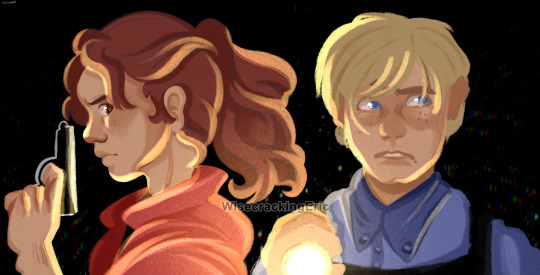
happy early ‘Raccoon City Blew The Fuck Up’ day to those who celebrate!!
#ericsart#I made this in like 5 minutes ignore all the weird details like Claire’s gun being super small just ssshhhh#resident evil#resident evil fanart#leon kennedy#leon s kennedy#leon kennedy fanart#leon s kennedy fanart#claire redfield#claire redfield fanart#rookie leon kennedy#re2 leon#re2r leon#re2 leon kennedy#re2 claire#infinite darkness leon#vendetta leon#death island leon#leon death island#leon infinite darkness#leon vendetta#resident evil 2 remake#re2 remake#re2r#re infinite darkness#resident evil infinite darkness#WHAT do I even TAG THIS AS#re claire#claire resident evil#resident evil claire
382 notes
·
View notes
Text

That one mod that makes leon wear crop tops ✨🧑🍳
#resident evil fanart#resident evil#resident evil 4#re remake#resident evil 4 remake#leon kennedy#ada wong#jill valentine#chris redfield#claire redfield#resident evil 8#resident evil 6#resident evil village#resident evil fandom#artists on tumblr#artoftheday#small artist#digital art#capcom
86 notes
·
View notes
Text
If we assume impatient-bastard-Cas was in fact always impatient-bastard-Cas…no wonder Uriel was side-eyeing him like dafuq man???
In fact, everyone who knows Cas-the-impatient asshole would be doing a double-take at his 180. Which is why Balthazar clocked it right away, too. And Ishim. It’s obvious in light of how Cas’s base personality is. (The stoic, rigid, mean angel’s angel who can talk the shit-talk and recite every code…)
Cas doesn’t hate Sam…that’s just how he treats ppl. Sam showcases Cas’s default ppl skills.
It’s the ones he’s nice to that are the outliers.
#cas is sweet to dean#charlie#hannah#jack#kelly#meg#claire#rowena eventually#news anchor lady#april#…it’s actually a very small list#and no wonder uriel was like !!!!!!#lol he likes you in fact he never acts like this#oh my god secondhand embarrassment for my usually badass comrade makin a fool of himself right now
315 notes
·
View notes
Text

nobody was drawing crossover art so i did it myself ‼️
#professor layton#adventure time#fionna and cake#simon petrikov#betty grof#hershel layton#claire foley#professor layton and the unwound future#ok spoilers in the next tag but#sad old archeologists with found family and dead/warped girlfriends who time traveled but made their choices and bid a tearful farewell#putting petrigrof and layclaire in a small flask and shaking them around furiously#ok im normal again
124 notes
·
View notes
Text
'If Peaky Blinders made the Irish actor a household name, will Christopher Nolan’s nuclear blockbuster send him into the stratosphere? He talks about extreme weight loss, hating school and why his next character won’t be a smoker.
Cillian Murphy is struggling with what he can and can’t say about his title role in Oppenheimer, the latest Christopher Nolan epic, such is the secrecy surrounding this film. Murphy is under “strict instructions” not to talk about the content. Which is awkward when you’ve flown to his home in Ireland to interview him specifically about playing the physicist who oversaw the creation of the atomic bomb, later detonated over Hiroshima and Nagasaki. It’s not clear who issued these instructions. Nolan? The studio? The US government? All I know is that as well as Murphy being gagged by hefty NDAs, I am not allowed to see it (“bit unfortunate”, he concedes).
So, yes, here we sit in an empty upstairs room of a restaurant near his house in Monkstown, Dublin, working out how to do this. The room is dark, the sun shining through a solitary Velux lighting his features like a Géricault. The only background noise is the low hum of a wine refrigerator. Murphy loathes interviews, looks visibly tortured at points. But he relaxes when I ask if he’s pleased with Oppenheimer. “I am, yeah,” he says. “I don’t like watching myself – it’s like, ‘Oh, fucking hell’ – but it’s an extraordinary piece of work. Very provocative and powerful. It feels sometimes like a biopic, sometimes like a thriller, sometimes like a horror. It’s going to knock people out,” he adds. “What [Nolan] does with film, it fucks you up a little bit.”
Nolan wouldn’t disagree. The director recently told Wired magazine that some of those who’d seen it were left “absolutely devastated … they can’t speak”. Which sounds like a bad thing, but is related perhaps to the thought of the 214,000 Japanese people, overwhelmingly civilians, who lost their lives when the bombs were dropped. Kai Bird, the historian who co-authored American Prometheus, the 2008 biography of J Robert Oppenheimer upon which the film is based, said he was still “emotionally recovering” from seeing the film, clarifying that it was “a stunning artistic achievement”.
Murphy’s portrayal is said to be astonishing (“Oscar-worthy” is the buzz). This is not unbelievable. While Hollywood might not know him as a leading man, this quietly intense actor has long been celebrated in the UK and Ireland, most notably for his nine-year stint as Tommy Shelby in Peaky Blinders. When he first appeared on our screens, looking like a renaissance painting of Saint Sebastian – chiselled head contrasting with translucent blue eyes – it was impossible not to be distracted. He appeared first on stage in Enda Walsh’s Disco Pigs, then the screen adaptation. Then 28 Days Later; Intermission; Ken Loach’s The Wind That Shakes the Barley. Previous collaborations with Nolan include the Dark Knight trilogy, Inception and Dunkirk, “significant milestones in my career,” he says, adding that Nolan “might be the perfect director”.
It was Nolan’s wife, the producer Emma Thomas, who called Murphy one afternoon at the home he shares with his wife, artist Yvonne McGuinness, and two teenage sons. Nolan doesn’t actually have a telephone, or an email, or computer for that matter: “He’s the most analogue individual you could possibly encounter.” So, Emma said Chris would like a word and passed the receiver, then the director came on the line. “Cillian, I’d love you to play the lead in this new thing,” he said. Murphy tries to recreate his response to this news. “I was lost for words. But thrilled. Like beyond thrilled.” It is characteristic of Murphy that the modulation of his voice barely changes as he expresses this. He was so stunned, he had to sit down. “Your mind explodes.”
In the absence of the three-hour feature, I scrutinise Oppenheimer’s three-minute trailer. It’s a rush of snapshots against the crackling of a Geiger counter. There’s Murphy, short back and sides, lifting 1940s eye goggles; blue and red atoms coming at him fast; orange light; white light; blackout; silence. Massive explosion against the backdrop of space. Overlaid is Murphy’s narration, “We’re in a race against the Nazis / and I know what it means / if the Nazis have a bomb.” There’s Matt Damon looking porky as army general Leslie Groves, director of the Manhattan Project: “They have a 12-month head start.” Murphy, pointing with cigarette: “18.”
He has put back on some of the weight he lost for the part, I’m relieved to see; his skin isn’t quite so taut over his skull and there are freckles over those eagle-wing cheekbones. He was determined to nail the scientist’s silhouette “with the porkpie hat and the pipe”, testing himself to see how little he could eat. “You become competitive with yourself a little bit which is not healthy. I don’t advise it.” He won’t say how many kilograms he lost, or what food the nutritionist told him to cut out. NDA? “Ach, no. I don’t want it to be, ‘Cillian lost x weight for the part’.”
Then again, the hurtling speed at which Nolan worked, crisscrossing the US, made it easy to skip meals. Murphy began to forget about food in the same way he began to forget about sleep. “It’s like you’re on this fucking train that’s just bombing. It’s bang, bang, bang, bang. You sleep for a few hours, get up, bang it again. I was running on crazy energy; I went over a threshold to where I was not worrying about food or anything. I was so in it, a state of hyper …” he gropes for the word, “hyper something. But it was good because the character was like that. He never ate.” Oppenheimer subsisted on little more than Chesterfield cigarettes and double-strength martinis, rims dipped in lime. “Cigarettes and pipes. He would alternate between the two. That’s what did for him in the end,” Murphy adds, a nod to the scientist’s death from cancer in 1967. “I’ve smoked so many fake cigarettes for Peaky and this. My next character will not be a smoker. They can’t be good for you. Even herbal cigarettes have health warnings now.”
I raise method acting and Murphy tilts his head and frowns. “Method acting is a sort of … No,” he says, firm but with a half smile. Oppenheimer had many defining characteristics, not least walking on the balls of his feet and a vocal tic that sounded like nim-nim-nim, but Murphy didn’t want to do an impression. Nolan was obsessed with the Brillo-texture hair, so they spent “a long time working on hair”. And the voice. The real question for Murphy was what combination – ambition, madness, delusion, deep hatred of the Nazi regime? – allowed this theoretical physicist to agree to an experiment he knew could obliterate humankind. “He was dancing between the raindrops morally. He was complex, contradictory, polymathic; incredibly attractive intellectually and charismatic, but,” he decides, “ultimately unknowable.
“Listen, it’s not like a spoiler,” he says, checking himself before he leans in, “but there are incidents in his early life that were quite worrying; very erratic.” They are in the film and the book, he steers. I suspect he is referring to Oppenheimer’s postgrad at Cambridge in 1926, when he placed a poisoned apple on the desk of a tutor towards whom he harboured complicated feelings of inadequacy and jealousy. Arguably, this was attempted murder. But Oppenheimer’s rich New York parents rushed in to bundle him into psychoanalysis. He was diagnosed with “dementia praecox”, a term describing symptoms associated with schizophrenia.
Murphy likes these complex characters; they’re his meat. People that don’t necessarily follow the – yawn – traditional transformative arc of storytelling. Not villains, exactly (although he’s played a few, including Scarecrow in Dark Knight and Jackson Rippner in Red Eye): “Villains are good if they’re well written, but if it’s one note or a trope, then they are dull.” He likes a script to stretch leisurely into all corners of the human condition, “all the shades”. At the same time, you have to understand his exceptional ability to portray interiority, physically manifesting intense human emotion without a word, radiating fierce, consuming energy. Which he does today, actually, when I stray off track.
Although Nolan is usually, shall we say, antiseptic in his approach to romance, Oppenheimer represents a significant shift. He told Wired the love story aspect “is as strong as I’ve ever done”. It features prolonged full nudity for Murphy and Florence Pugh, who plays Oppenheimer’s ex-fiancee, as well as sex, and there are complicated scenes with Emily Blunt, who plays his wife, “that were pretty heavy”. Murphy turns coy: “I’m under strict instructions not to give away anything.”
He asks if I’ve heard of chemistry tests. “They put two actors in a room to see if there’s any spark, and have all the producers and director at a table watching. I don’t know what metric they use, and it seems so outrageously silly, but sometimes you get a chemistry and nobody knows why.” This is a roundabout way of saying his scenes with Blunt and Pugh conjure this magic. His established bond with Blunt (they co-starred in A Quiet Place II) meant “the audience gets something for free”, he says. “You can be immediately vulnerable and open, and try stuff. There were moments where I remember saying, ‘I couldn’t have done that if it wasn’t with you.’”
Murphy, 47, grew up the eldest of four in Cork. His father was a civil servant, his mother a French teacher. They were a middle-class family, musical; his father “can pick up any instrument”, his brother played piano, and they regularly got stuck into “traditional Irish sessions”. Bookshelves were stuffed with literature, the radio often on, the “shitty” TV set not so much. Home life was busy but his parents taught him French and Irish, and sent him to an all-boys academic, rugby-playing private school. “I got all the education” he says, drily.
The story of how much he disliked the Presentation Brothers College, the hard-drinking masculine emphasis, how he found solace playing guitar in a band, is much rehearsed and he says today he doesn’t want “to slag the school off. I hear it’s great now.” Something about this experience seems nonetheless unsettling. He had one friend, who is still his best friend, “so I wasn’t, like, an outcast”. He played rugby for the first couple of years, but abandoned it “because everyone was all of a sudden towering over me.” Was it an unhappy time? He shifts. “It was OK. I was a bit of a messer, like I’d get in trouble and say nothing. It wasn’t the ideal school for me.”
He enrolled in and dropped out of a law degree at University College Cork, which created some friction with his parents (when I ask if his own sons will go to university in Dublin, he says, “Whatever they want”). He continued with the band, his first creative love but the one that got away. When they were offered a contract with Acid Jazz records, he turned it down for a number of reasons, he says, crucially that he didn’t feel good enough. He still writes and plays at home but, no, you won’t be hearing any of his recordings, ever, he says.
It’s a funny thing talking to Murphy. He’s at once garrulous (on the craft, or literature, or ideas) and reticent (pretty much anything else). I sense in previous interviews that he skates over issues close to his heart – such as the expression of emotion in Ireland and the need to teach empathy in schools. But when I try to drill in to these topics, get to the root, he clams shut, emitting energy like a nuclear reactor.
Later, in a different context, he will tell me a truth: “I’m stubborn and lacking in confidence, which is a terrible combination. I don’t want to put anything out that I don’t think is excellent.” But he clearly hates the pantomime of publicity, asking why I am returning to certain topics and repeating lines I’ve read elsewhere. I can almost see him at home with its views towards the Irish Sea, complaining to his wife as they tuck into supper: “Another one, asking the same fucking questions.”
If he could get out of going to Cannes, of standing on red carpets, dressed as is his habit for a funeral, hair shellacked, hands in pockets; if he could turn his back on the coloured-foam mics thrust in his face, he would. He really would. No, it dawns on him now, there’s something even worse than the red carpet; there’s the talkshow rounds. The very word “talkshow” comes out of him like a pain from his ribcage, as if the parcelling out of amuse-bouche anecdotes, offering them up to the forced laughter of that false god of show business, the studio audience, is in itself the most cheapening experience known to mankind.
“I do them because you’re contractually obliged to. I just endure them. I’ve always found it difficult. I’ve said this so many, many times.” Then there’s the double wince of realising that, yes, he’s done it again. He’s laid into the industry that feeds him. His hands raise slowly in surrender. “I want to just caveat this by saying, I’m so privileged. I’m so happy to be doing what I love. I’m really lucky. But I don’t enjoy the personality side of being an actor. I don’t understand why I should be entertaining and scintillating on a talkshow. I don’t know why all of a sudden that’s expected of me. Why?”
There’s an awkward silence. I say that he reminds me of Naomi Osaka, the tennis player who refused to talk to journalists after the French Open in 2021. He says he feels “100%” sympathy with her, “because why should she have to perform?” Then he relents. “But I get it. I get it’s a kind of ecosystem where the film feeds the publicity which feeds the talkshows which goes back and feeds the film, so, like, that’s how it works. I suppose I’m just not good at it. At interviews, at this stuff,” he gestures at me. He says after he leaves me today he’ll be going down the stairs thinking of all the things he’s said and worrying it’s come across all wrong. “Do you know what Sam Beckett said? ‘I have no views to inter.’ I love that. That should be the interview.”
We return to his art, the tension falls away and he’s back to his charming self, charged air evaporating. Since Oppenheimer, he’s also wrapped Small Things Like These, an adaptation of Claire Keegan’s brilliant novella set in 1985 in a small Irish town on the edge of which is a convent and “laundry”. Murphy is a huge fan of Keegan. He remembers reading her 2010 novel Foster on a train and having to pull his hoodie over his face because he was crying so hard. Anyway, he’d wanted to work with the Peaky Blinders director Tim Mielants and they were throwing ideas around in his sitting room when Murphy’s wife suggested Small Things. “No, there’s no way,” Murphy said. “That’s going to be gone already.” But when he called the agent, he found it was available. “I went, ‘No, you’ve got to be fucking kidding.’” Murphy pitched the idea to Matt Damon, who has set up a studio with Ben Affleck. “From there it all just happened really quickly.”
Murphy plays Bill Furlong who, funnily enough, is a man of few words. Keegan’s light-touch writing is everything he loves in art – the sense that you are not being bashed over the head by an idea. That’s how he tries to act, he adds. “I’m always trying to cut lines in scenes, because I feel like you can transmit it. Like when you see a person on a train thinking, or driving a car, and you are purely observing someone and feeling the energy that is vibrating from them. That’s the sort of acting I love. In a lot of film and television, they want to cut those bits to go to the action. I like films that pose the big questions and then leave it to the audience.” Perhaps this is at the heart of his reticence in interviews? That he doesn’t feel the need to explain.
He still finds it “nuts” that the last of the Magdalene laundries closed in 1996, that it was illegal to buy condoms in Ireland until 1985, that divorce was made legal only in 1996. He remembers vividly thousands of people still going to see moving statues in Cork when he was growing up. “Crazy. But, like, how far the country has come since then, we’re so socially advanced now compared with where we were. But you must look back. And art is a better way of doing that than reading all these reports [into the laundries].” (Afterwards, he emails me: “The nation is actually dealing with an unresolved collective trauma. Who knows how long this will take to heal, but I feel strongly that art, film and literature can help with that process. It’s a kinder and gentler sort of therapy. I hope that our movie can help with that in its own little way.”)
Because he’s a nice man, because he doesn’t want me to feel bad about our encounter, and because he’s generous and hospitable, Murphy finishes by telling me some of the best places to visit in Ireland. He and his family are staying here for the summer. They’ve had it with air travel and his home town of Cork is only a couple of hours away. He supplies me with other recommendations: a great book he’s just read, Brian, by Jeremy Cooper, oh, and there’s the Francis Bacon studio exhibition I should catch on my way out.
But before I go, what has he learned from playing Oppenheimer? Foremost, he says, that scientists think differently. He knew this already from playing physicist Robert Capa in Danny Boyle’s Sunshine (2007) and hanging out in Cern, home of the Large Hadron Collider in Geneva, for research. “I had dinner with all these geniuses. I’ll never understand quantum mechanics, but I was interested in what science does to their perspective.” He sought their opinions on subjects that matter – love, politics, our place in the universe, “infinity, or whatever the fuck. Because they have a completely different way of taking in information than we do. I remember one scientist saying, ‘I don’t believe in love. It’s a biological phenomenon, the exchange of hormones between the female and the male. That’s all. Love is a nonsense.’” Murphy taps the table with his hand. “I couldn’t go along with that, obviously.”
#Cillian Murphy#Oppenheimer#Christopher Nolan#Emily Blunt#Florence Pugh#Danny Boyle#Sunshine#Brian by Jeremy Cooper#Small Things Like These#Claire Keegan#A Quiet Place II#Peaky Blinders#Tommy Shelby#Disco Pigs#28 Days Later#Intermission#The Wind That Shakes The Barley#The Dark Knight Trilogy#Inception#Dunkirk#Scarecrow#Jackson Rippner#Red Eye#Bill Furlong
171 notes
·
View notes
Text

― Claire Keegan, Small Things Like These
474 notes
·
View notes
Text

The sky above is nice, huh? Something is wrong.
#my art#whnoc#claire elford#in stars and time#in hearts and time#I should try and make this entire sequence I do kinda have a vision for it....#but by then it would be Spoilers~!#probably.#yeah.#teehee.#but for now this is all I have made so teehee enjoy the non-spoilery part. I think.#...hmmmm I may change a small Detail here if I were to make this an animation thing but. teehee.#she's waking up from a nap~!
25 notes
·
View notes
Text


the Resident Evil photo cards I designed are officially a reality! I’ll be selling them at a local Calgary market tomorrow, and if I have any left overs after that I’d be more than happy to mail out 💌 feel free to contact me here or on my ig if you’re interested; I’ll need to factor in shipping depending on how far out you are but they’d likely be around 20$CAD for a set ★ just playing it by day for now, but we’ll see!
#resident evil#claire redfield#chris redfield#jill valentine#leon kennedy#disclaimer: most of the stickers used on the Jill example are from craft stores but some are from small businesses!#if you see your stickers and would like credit please let me know!
35 notes
·
View notes
Text
Thank you for the tag @merriell-allesandro-shelton and @panzershrike-pretz !!!
10 Characters, 10 Fandoms
In no particular order:
1. Charles "Chuck" Grant- Band of Brothers
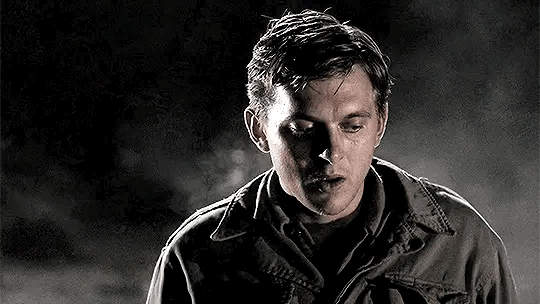
2. Eugene Sledge- The Pacific
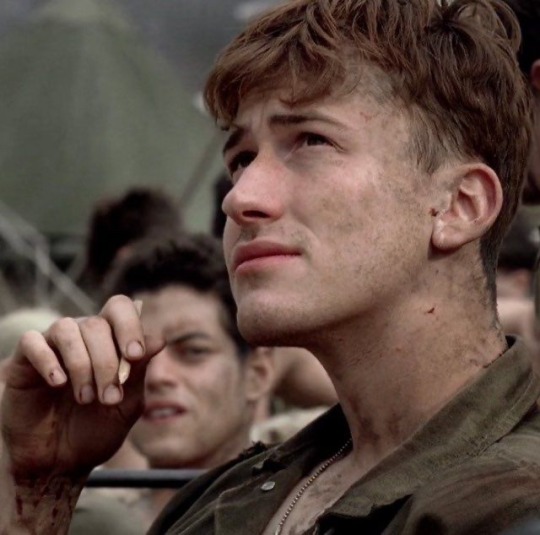
3. Ahkmenrah- Night at The Museum
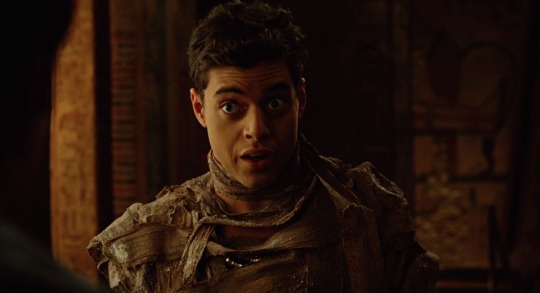
4. James Herriot- All Creatures Great and Small
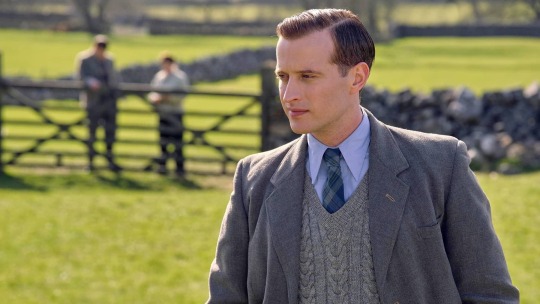
5. Matthew Crawley- Downton Abbey
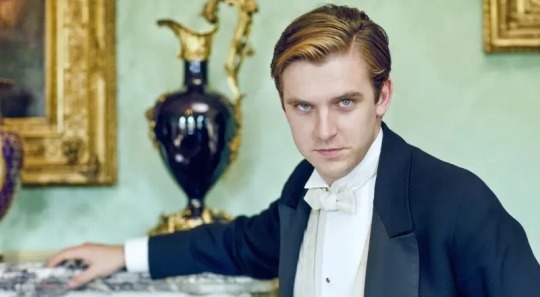
6. Daniel Jackson- Saving Private Ryan
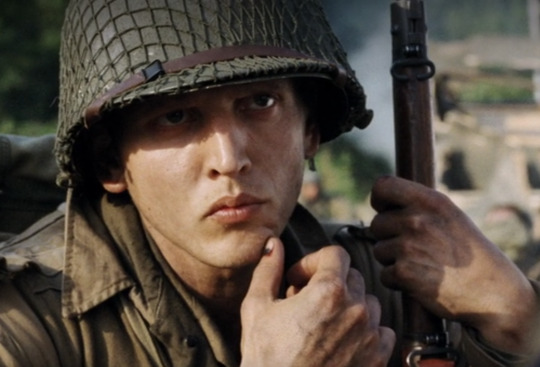
7. Prince Albert- Victoria
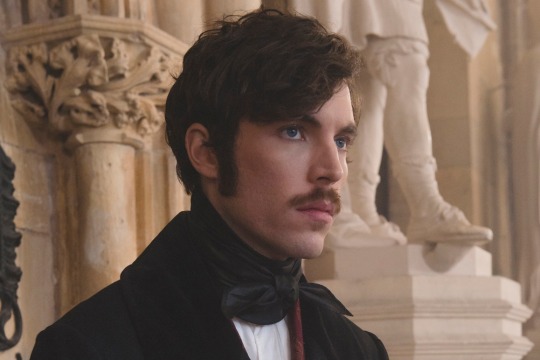
8. Prince Kit- Cinderella

9. Tommy Shelby- Peaky Blinders
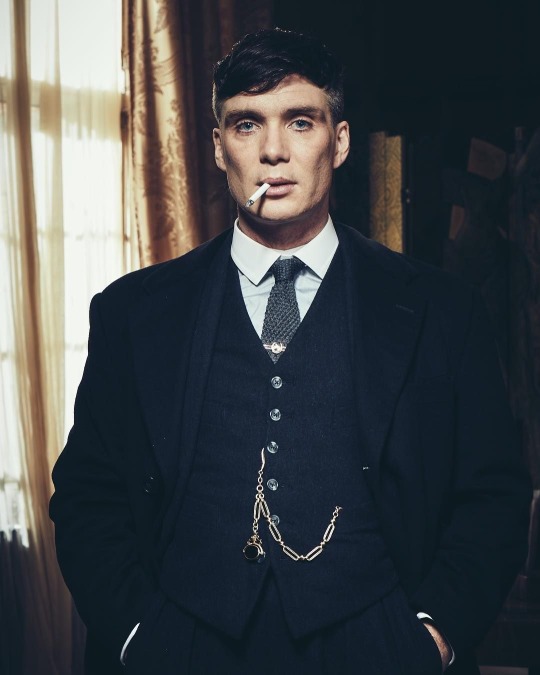
10. Dallas Winston- The Outsiders

#I think I have a thing for men with pretty blue eyes#Dallas and ahkmenrah are the only ones without blue eyes#also grant and James look very similar and him and Helen are very much giving off Claire and Grant vibes#tag games#band of brothers#the pacific#night at the museum#saving private ryan#all creatures great & small#downton abbey#the outsiders#peaky blinders#live action cinderella#Victoria pbs
52 notes
·
View notes
Text
New photos from an amazing new Vanity Fair article with much more in depth information about the upcoming Andrew Haigh movie, All of Us Strangers, starring Andrew Scott and Paul Mescal!


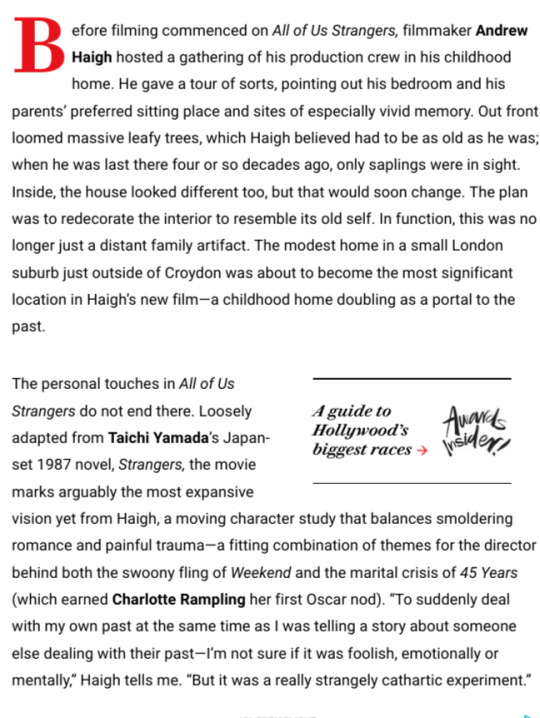

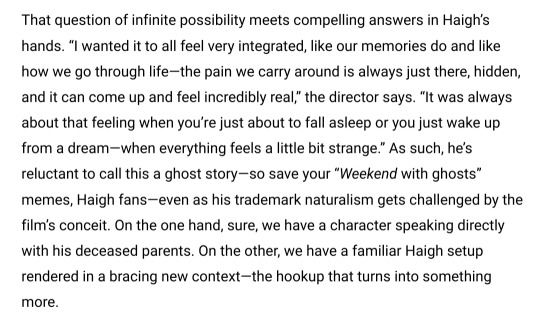

Sex and strangers have long been intrinsic elements of Haigh’s filmmaking. In Weekend, a one-night stand provides the impetus for a spellbinding saga of longing and intimacy; HBO’s Looking charts the growth and regression of its single gay San Franciscans through raw, honest portraits of their sexual experiences. Yet in All of Us Strangers, it all hits differently—becoming more emotional, more revealing, definitely more mysterious. “I’ve been more objective in how I’ve shot sex scenes in the past,” Haigh says. “Here, I really wanted to feel the subjective nature of having sex and what it feels like—the nervousness and the excitement and the physical sensation of being touched by someone else, and what that does to you.”
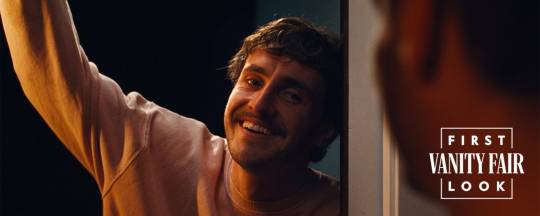
The two performers at the romance’s center bring that intention to beautiful life. Scott inhabits a character just coming to terms with his buried shame, while Mescal takes on a more enigmatic figure who unveils himself carefully. The actors commit wholly—sweetly, deeply, explicitly—to the intensity of the physical connection that develops between Adam and Harry. “There was chemistry between the two of them literally the second I saw them together,” Haigh says. “Both of them were pretty fearless. There was no sense of them being afraid of approaching those scenes. They knew how important they were.” That importance particularly relates to Adam’s greater journey in All of Us Strangers. It’s no coincidence the sex feels unique, even special, with Harry. That bond proves inextricably linked with his posthumous family reunion...
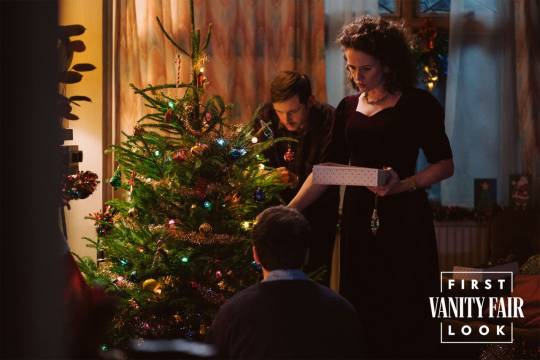

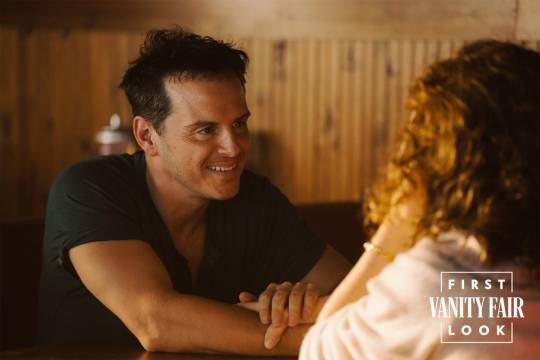
There's so much more that I want to quote, but this is the most important part to me.
Scott’s skill as a performer serves as the real glue. His work is openhearted, incredibly poignant, and dramatically rigorous. And somehow it’s his first true lead role in a film, following years of lauded stage work and that fan-favorite turn as 'Hot' Priest in Fleabag. “This whole film sits squarely on his shoulders, and he clearly had it in him, but it’s beautiful to see it,” says Broadbent. Haigh adds that Scott “hasn’t had this kind of central role—and I always felt like he should have that central role.”
#andrew scott#andrew haigh#all of us strangers#paul mescal#claire foy#jamie bell#i can't fucking wait#vanity fair#he's had lead roles before#just not in a while#and they were small films mostly
144 notes
·
View notes
Text




I made these in Spray Paint in roblox. Btw help me, I can’t resist the urge to draw FPE characters. I’m very proud of the Claire one, I replicated the design very well.
Claire and Miss Circle belong to Kaaatie on Twitter/X and Youtube, they’re a very awesome artist!
Sans belongs to Toby Fox (I think we all know that)
#art#sans#undertale#drawing#digital art#small artist#digital drawing#roblox#miss circle#fundamental paper education#Claire (FPE)
25 notes
·
View notes
Text
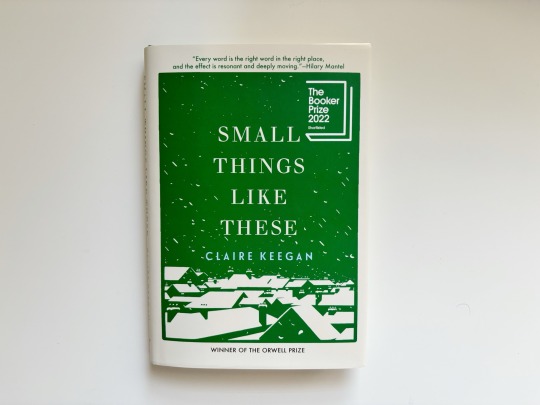

Read this before bed the other night and loved loved loved it 🤍
#claire keegan#small things like these#book#read#college#studyblr#study break#study#psychology#neuroscience#books#fellowship#internship#university#library#library books#library and information science#library science#current book#current read#recent reads
38 notes
·
View notes
Text
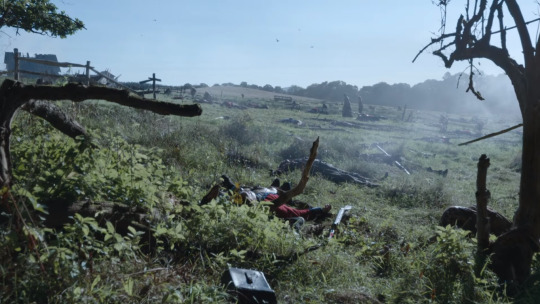
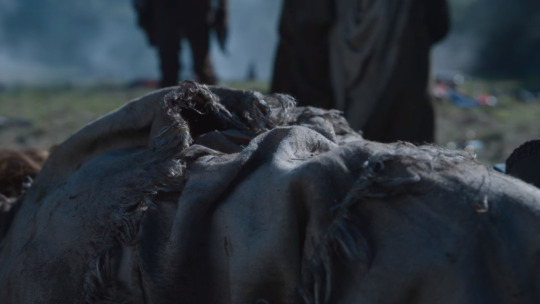
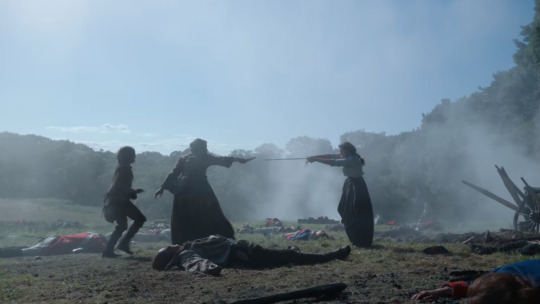

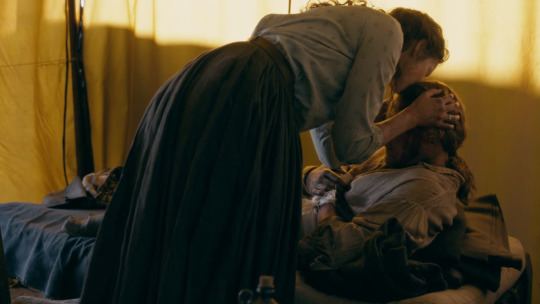
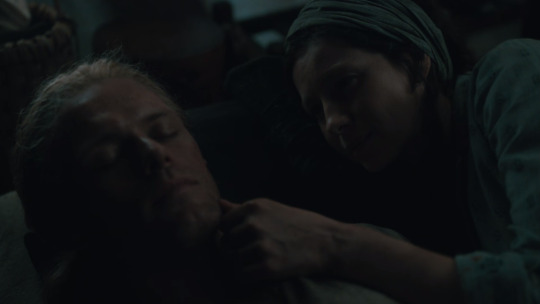
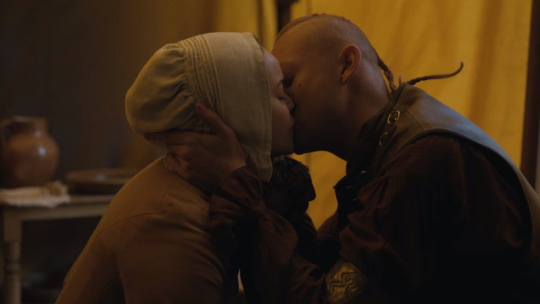


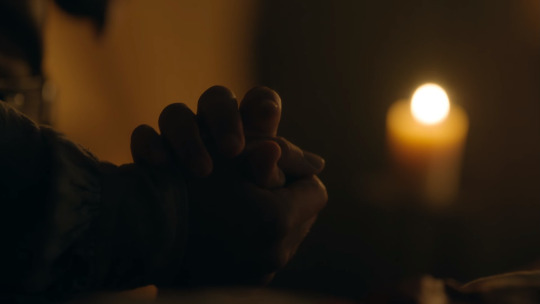



**Shots of the Episode**
Outlander (2014)
Season 7, Episode 8: “Turning Points” (2023)
Director: Joss Agnew
Cinematographer: Nic Lawson
#shots of the episode#outlander#outlander s7#outlander season 7#turning points#nic lawson#joss agnew#diana gabaldon#period#period romance#fantasy#catriona balfe#sam heughan#jamie x claire#claire x jamie#sophie skelton#richard rankin#john bell#izzy meikle small#cinematography#1.78:1#2023#2023 tv#starz#screencaps#stills#tv stills#tv screencaps
86 notes
·
View notes